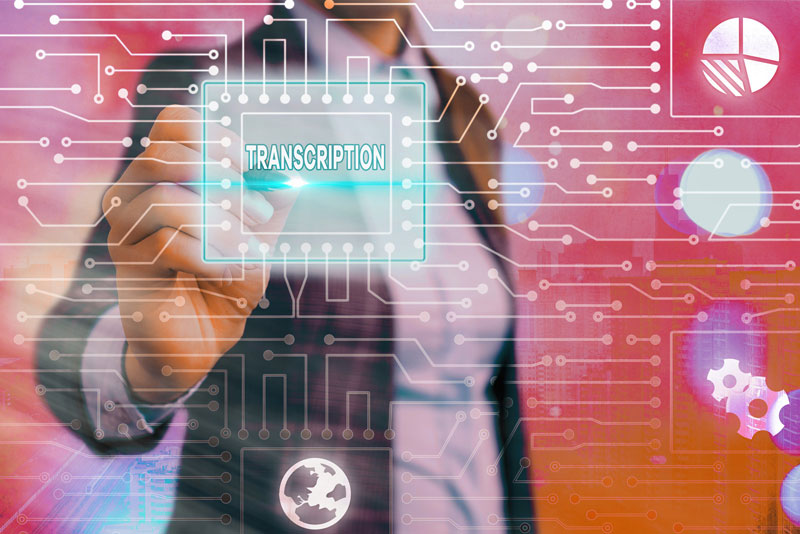As a legal transcription company assisting attorneys, we are aware how the legal sector is struggling to adjust during this pandemic. Lawyers handle a number of legal materials that include briefs, letters, summons, sworn statements, interviews, jury instructions, administrative hearings, deposition and so on. Many legal proceedings are in recorded form, which need to be transcribed in a timely manner so that the documentation part is streamlined.
The impact of COVID 19 has been severe in all aspects of the economy. While legal practice is one of the more traditional industries where the deployment of technological tools has not always found a comfortable fit, the current pandemic has forced the legal industry to adopt technology to carry out legal proceedings.
Legal service is an essential service but due to the wide spread of the pandemic and the mandatory social distancing norms, courts are reconsidering how they conduct legal proceedings. They have switched to virtual operations and started to explore the full potential of the newer workplace innovations in the delivery of legal services. This new change has transformed transcription process too. In October 2019, the National Court Reporters Association reported a shortage of 5,000 court reporters in the U.S. Meanwhile, before the pandemic, the U.S. Bureau of Labor Statistics projected at least a 7% increase in demand through 2028.
Due to the pandemic, the legal industry was experiencing a huge backlog but with the help of technology like remote video platforms and artificial intelligence-enabled transcription, the legal industry has been able to continue with their services. Tony Donofrio, chief technology officer at Veritext Legal Solutions, a national court reporting agency, stated that they had no choice but to move forward with transcription services to carry out the legal proceedings. According to Donofrio, there are two problems that the legal industry faces – credibility and accuracy of legal records, and confidentiality and privacy of the contents of legal records. He believes that AI-enabled transcription is capable of solving these two issues.
Due to the popularity of AI-enabled transcription during COVID 19, remote proceedings are becoming a common thing even after COVID 19. Chelsie M. Lamie, a civil trial lawyer in Clearwater, Florida, said that she hasn’t attended an in-person litigation event since 60 days and she takes depositions by Zoom and many telephonic hearings. Michael G. Romano of Romano Law in Beaverton, Oregon also stated that due to the pandemic and the stay-at-home business situation, he did his first deposition via Zoom and is doubtful about going back to in-person depositions because it was so convenient. He also added that typewritten transcripts of depositions are expensive. So switching AI-enabled transcription is a feasible choice.
Concerns about AI Transcription
Karen Renee, president of eCourt Reporters in Burlington, Wisconsin, a company that allows attorneys to schedule and hire freelance court reporters and legal videographers across the country, disagrees and argues that while they embrace technology, they have concerns about how it is used.
Even though AI transcription is a convenient choice, the accuracy of the records is a major concern. Court reporters are professionals who ensure utmost accuracy in transcription. They are trained professionals who can understand even the extremely hard-to-hear words that the deponent says and transcribe them accurately.
Reesa Parker, co-founder of Dallas-based Goucher Parker Spivey, said that using a virtual platform to take reporters wherever they are and put them where they are needed, and using AI as an aid to create and produce verbatim transcripts is a better choice. She also added that this setup will give attorneys and judges a comfort that AI cannot offer. She also believes that AI hasn’t advanced to that point where it can replace a court reporter.
Humans are Better Than Machines
Although AI-enabled transcription makes audio to text transcription quicker and easier, it is important to understand it does not assure accuracy. Machine-generated transcripts are prone to errors, blank space, incapability to understand different accents, failing to identify multiple speakers, etc. Functionality is also a major problem with AI tools as most of them lack the in-built capability of discerning context. So, the best solution is to hire a legal transcription company that can transcribe accurately and also verify the content transcribed by the machine.
An experienced transcription vendor will have trained professionals who are well-versed with legal terminologies and procedures and can handle any type of legal dictations. They provide high-quality transcripts and ensure secrecy of your data. They offer confidential dictation facility via a toll-free number or a digital recording device. These providers can meet tight deadlines also ensure error-free transcripts. They also provide customized digital transcription service according to the needs of the clients at reasonable pricing.




